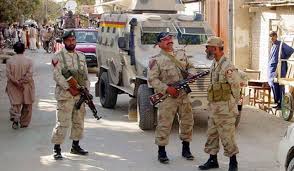In Balochistan, the human rights situation is getting worse day by day. Mostly because no human rights organization and media is allowed by the Pakistan government to investigate the ground situation, military highhandedness is going on unnoticed.
522 persons have been reported to be victims of Enforced Disappearance in the hands of security forces in 2016 alone. This number excludes the persons who were killed and dumped on road sides or killed in fake encounters.
115 persons have been killed, most of them in military custody.
The bodies bore signs of severe physical torture. Those found dead were reported to be picked up by security forces before their bodies were found.
These are the cases whose details we could find from the families of the victims. But there is no proper communication network in almost 70% of Balochistan, and we fear the number of unreported HR abuses is much higher.
Some of the families managed to reach the Human Rights Commission of Pakistan, which has its offices only in capital cities like Karachi and Quetta. While more than 99% cases are going unnoticed.
Appeals of HRCP and Amnesty International were also unheard on the issue of Baloch Missing Persons. HRCP sent a request letter to Inspector General of Police of Sindh province in Pakistan regarding case of Wahid Baloch and formed a body to investigate it. Amnesty International also issued an appeal of urgent action on the case the literary activist. But all these efforts have not yielded result so far.
Balochistan high court and Pakistan’s Supreme Court have also failed to deliver justice to the people of Balochistan.


